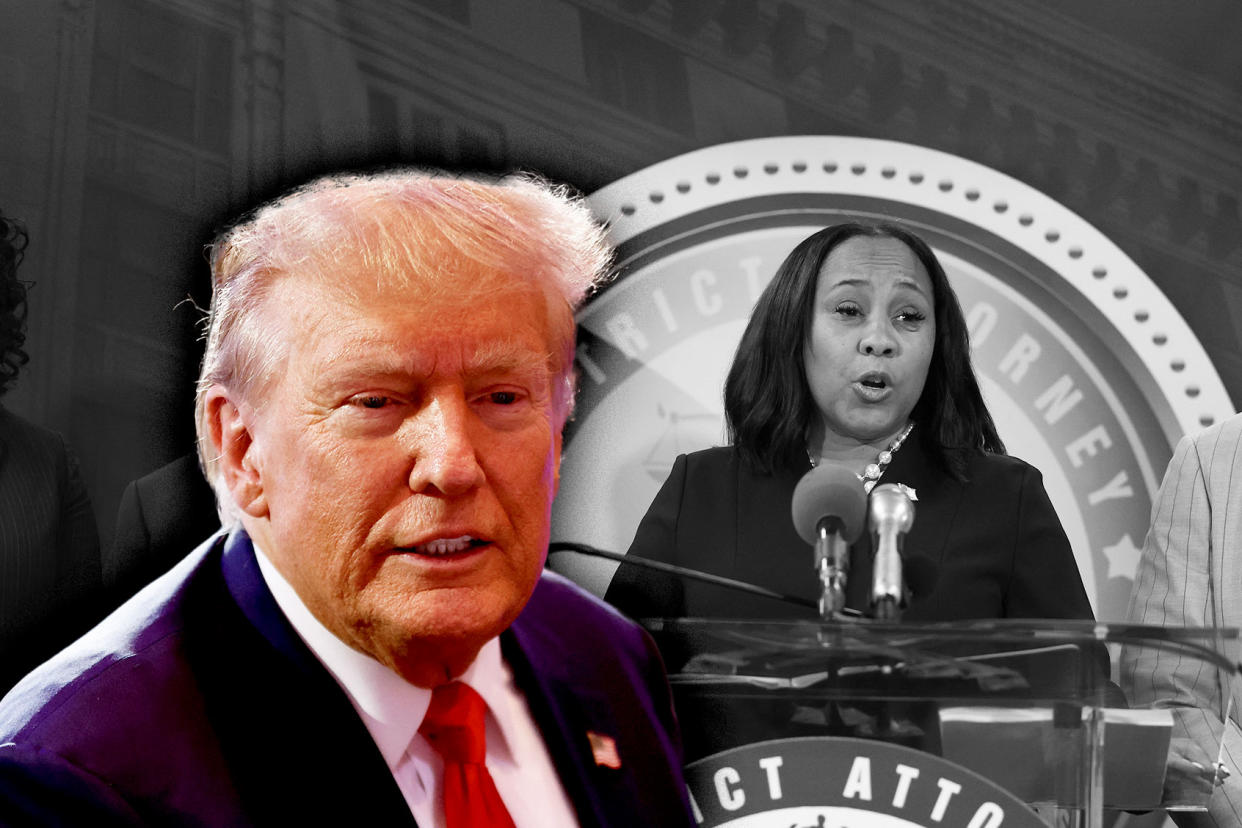“Fani Willis messed up badly”: Appeals court deals another blow to Trump's Georgia election case

The Georgia Court of Appeals has further delayed Donald Trump’s election interference case in the state, revisiting the question of whether Fulton County District Attorney Fani Willis should be removed for alleged misconduct.
In a Wednesday filing, the court granted an interlocutory appeal to the former president's legal team, allowing them to argue once again that Willis should be removed from the case. Trump's legal team has 10 days to file a notice to appeal.
The case, concerning Trump's effort to get Georgia officials to change the results of the state’s 2020 election, has faced a tumultuous path since the DA’s office launched an investigation more than three years ago.
Willis has faced significant scrutiny for her relationship with prosecutor Nathan Wade, which Trump lawyers argued created a conflict of interest. Earlier this year, experts also warned that her continued comments on the case, even after a judge ruled she shouldn’t be tossed, posed a threat to the continued prosecution of the case. For example, Willis' remarks on cable news — that "the train is coming" -— could be construed as violating the requirement that public comments on a case be limited to those that serve a "legitimate law enforcement purpose," per Georgia attorney Andrew Fleischman,
The Georgia appeals court made it clear that questions on Willis’s potential misconduct remain unanswered.
University of Georgia Constitutional Law professor Anthony Michael Kreis put it bluntly in a post to X: “Fani Willis messed up badly.”
According to Kreis, delays have pushed the case on Donald Trump’s 2020 efforts to interfere in the Georgia presidential race to beyond the upcoming election, allowing him to stand for re-election despite criminal allegations in his conduct in the last race.
“There will be no Georgia trial before 2025. Period. Full stop,” Kreis added.
“It is entirely possible that the Manhattan case is the only one that makes it to verdict before the election,” Attorney Bradley P. Moss wrote on X, referencing ongoing proceedings on the 2015 incident, where Trump allegedly tried to interfere in that election by making hush money payments to bury a damaging story.
As legal analyst Anna Bower noted, the legal challenge opens questions broader than Willis’s disqualification, which Fulton County Judge Scott McAfee ruled against in March.
“One major consequence of this decision: The defendants can now use their disqualification appeal as a hook to add a bunch of other issues to the appeal (i.e., Judge McAfee’s denial of the defendants’ challenge to the RICO charge),” Bower wrote on X.
Judge McAfee, who ruled Willis did not have a clear conflict of interest, said that the “appearance of impropriety” could be remedied by removing Wade from the case. Some legal experts said this remedy didn’t go far enough, including Federalist Society attorney Will Chamberlain.
“Judge McAfee's ruling was logically incoherent,” Chamberlain said on X. “I strongly suspect that the Georgia Court of Appeals will reverse Judge McAfee and throw Willis and her office off the case.”
Trump’s broad strategy of delaying efforts to hold him accountable until after the 2024 election has paid off in numerous jurisdictions, with the Supreme Court currently holding up a federal inquiry into Trump’s actions on January 6 via arguments on presidential immunity.
The Georgia case is the second Trump trial to face similar delays this week, with federal Judge Aileen Cannon indefinitely postponing a Florida case involving Trump’s mishandling of classified documents.
But some don't think all hope is lost, such as attorney Jefferey Evan Gold, who argues that the appeal won’t necessarily stop proceedings from taking place.
“Judge McAfee said he was moving on with case ‘regardless of whether the petition is granted ... and even if any subsequent appeal is expedited by the appellate court,’” Gold wrote on X, adding that the appeals court would actually need to stay the case to stop McAfee from moving forward.